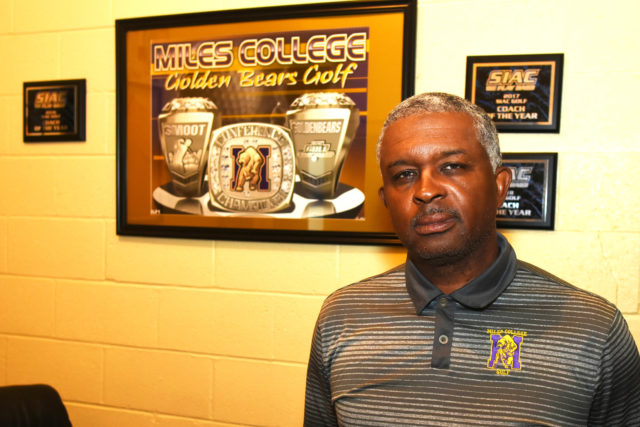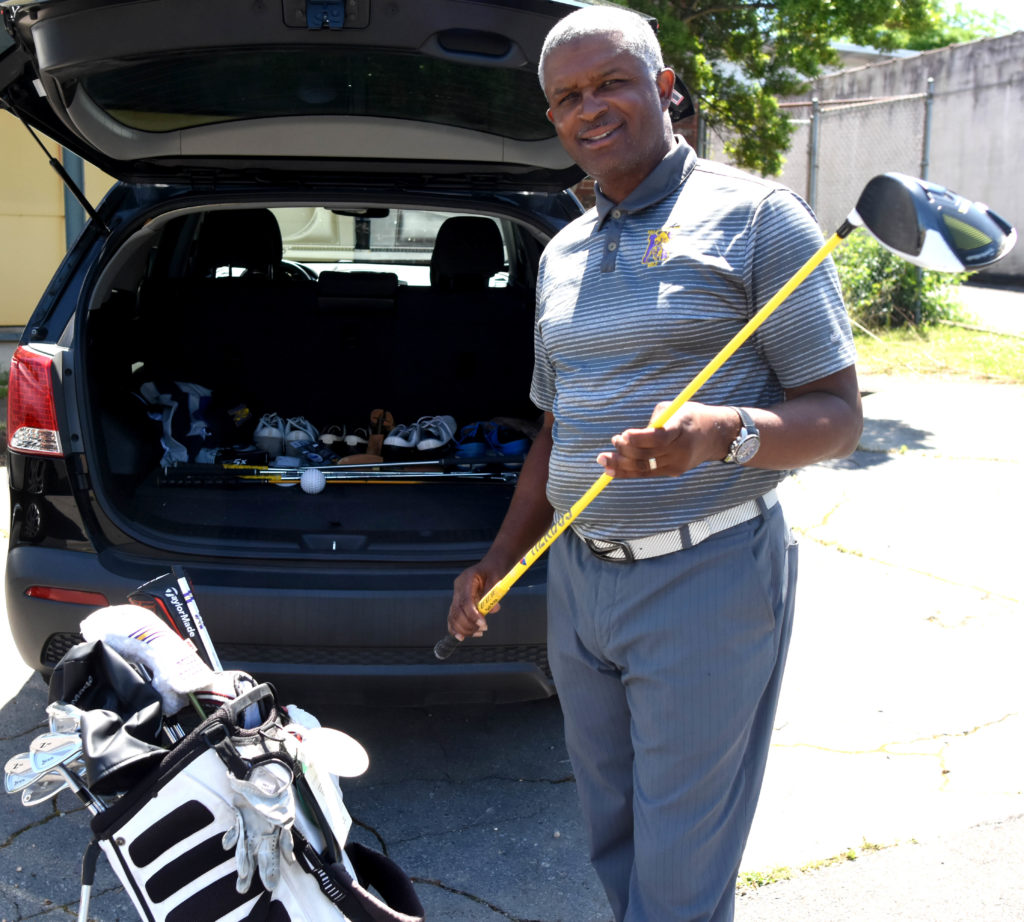
Solomon Crenshaw Jr.
For the Birmingham Times

Playing a round of golf is similar to a journey through life, said Miles College head golf coach Leonard Smoot.
“There are ups and downs. There are challenges,” said Smoot, a four-time coach of the year in the Southern Intercollegiate Athletic Conference (SIAC). “You’re going to have good days. You’re going to have bad days. Some days you’re going to shine. Some days you’re not going to shine.”
On May 26, Smoot will be inducted to the African American Golfer Hall of Fame in West Palm Beach, Fla. The retired chief warrant officer, who served more than 24 years in the U.S. Marine Corps, became the third black golfer to make the Marine Golf Team and compete in the All Inter-Service Golf Championships.
How are 18 holes just like walking through life?
According to Smoot, “One hole might be good, and the next hole might not be so good. Golf is probably the closest thing to life when it comes to the conditions and challenges you face.”
Life Lessons
Golfers agree that there are life lessons to be learned from playing the game. They must be patient and consider the consequences of needlessly being aggressive in pursuit of a grand score.
“Par is your friend,” said Chris Osborne, a champion in Amputee Long Drive Championships events; he won his age division (35 and older) and holds the world record of 332 yards, as well as the U.S. long-drive title.
Osborne added that there is no absolute in golf because conditions are always changing.
“Those who think they’re going to master golf are the ones who fall short and end up very disappointed,” he said. “You play the game. You do not master the game.”
Darryl Jones, a recently retired assistant general manager of operations and technical services with the Birmingham Water Works, said repetition through practice is essential, but thinking about a shot too much can work against a player, as well.
“When [former professional basketball player and current television personality] Charles Barkley started playing golf, he had a decent little swing,” Jones said. “He took some lessons and tried to break the swing down. Now he’s thinking so hard that his swing is messed up. It’s a challenge to get it right.”
Lee Gurley, 82, has a similar view of the sport. The starter at Birmingham’s Highland Park Golf Course has been involved in the game since he was a caddy at age 8. In those days, he would slip onto whites-only courses to play, often using left-handed clubs—he is right-handed—because those were the only ones he could get. Over time, Gurley would move to New England, learn to play right-handed, and ultimately get good enough to set a course record of 58 at Highland Park 10 years ago; another African American sliced a stroke off that record with a 57 about five years ago.
Beating the Scorecard
Gurley said a misconception of the sport is that a golfer is playing against other players on the course. Not so, he said.
“You’re playing against the golf course. The course has a scorecard: nine holes on the front and nine holes on the back,” said Gurley, who explained that each hole calls for certain swings, certain strategies.
“Your mindset should be to conquer that scorecard. … If you can beat that scorecard, you can play golf. That was my mindset.”
Gurley, who has worked at Highland Park for 45 years, said he’s played a lot of golf, but never against an individual.
“I’m playing this golf course,” he said. “That’s the man I’m trying to beat out there, not you or my partner. … That man out there, [the course], has a score of 71 or 70. I’m trying to beat that 70.
“You’re not playing against yourself . . . Your main thing is to play that golf course. If you beat the scorecard, you have beaten a whole lot of folks.”
To read more stories of golf in Birmingham, click one of the links below.
The History of Black Golf in Birmingham
Chris Osborne Lost Leg in Motorcycle Accident; Became Champion Golfer




